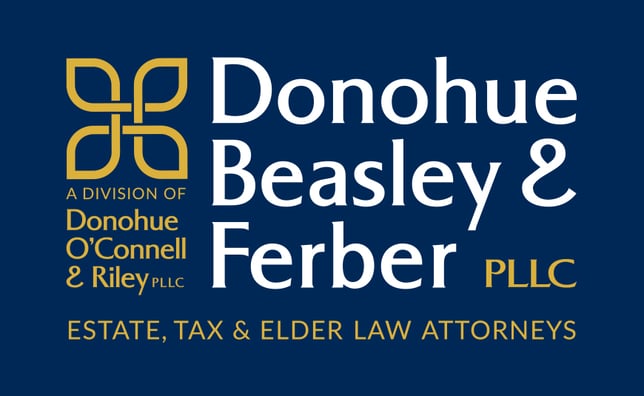Special Needs Trusts: Ensuring Care for Disabled Loved Ones

When it comes to providing for a disabled loved one, there are many considerations to take into account to ensure they receive the care they need without compromising their eligibility for vital government benefits. One key tool in achieving this balance is a Special Needs Trust (SNT). An SNT allows a person with a disability to have an account that can pay for supplemental needs while still qualifying for programs like Medicaid and Supplemental Security Income (SSI).
What is a Special Needs Trust?
Special Needs Trusts, also known as Supplemental Needs Trusts, are carefully crafted legal arrangements. They are designed to hold assets for the benefit of an individual with disabilities, without disqualifying them from receiving public assistance. This trust can be used to pay for expenses that government benefits do not cover, such as personal care attendants, out-of-pocket medical expenses, and other life-enhancing expenditures.
Types of Special Needs Trusts
There are primarily two types of Special Needs Trusts:
- First-party trusts: These are funded with the beneficiary’s own assets, perhaps from an inheritance or a legal settlement. They must include a payback provision to reimburse Medicaid upon the beneficiary’s death.
- Third-party trusts: These are funded with assets belonging to someone other than the beneficiary, typically parents or other family members. Unlike first-party trusts, they do not require a Medicaid payback provision.
Why Establish a Special Needs Trust?
The reasons for establishing an SNT are numerous, but they revolve around the beneficiary’s quality of life. Here are a few:
- Protecting Eligibility for Public Benefits: Properly structured, an SNT will not affect a disabled individual’s eligibility for benefits like Medicaid or SSI.
- Providing Financial Security: An SNT ensures that the beneficiary has the financial means to pay for additional services and care that are not covered by public assistance.
- Peace of Mind: For family members, creating an SNT is a proactive step in planning for the future care of their disabled loved one.
Choosing the Right Trustee
Selecting a trustee is one of the most important decisions in creating an SNT. A trustee manages the trust’s assets and makes all decisions related to disbursements. The trustee should be someone who is not only trustworthy but also has an understanding of the beneficiary’s needs and the complexities of government benefit programs.
Setting Up a Special Needs Trust
Establishing an SNT requires careful planning and adherence to legal standards. Here's an overview of the process:
- Assess the Beneficiary’s Needs: Determine what the beneficiary's future needs may be, including medical care, living arrangements, and personal care.
- Choose the Type of Trust: Decide whether a first-party or third-party trust is more appropriate based on the source of the funds.
- Select a Trustee: Choose a responsible party or professional to manage the trust.
- Create the Trust Document: A legal document must be drafted by an attorney that specializes in disability and trust law.
- Fund the Trust: Transfer assets into the trust, being careful not to interfere with benefit eligibility.
Considerations for a Special Needs Trust
When planning for an SNT, it’s important to consider:
- The long-term needs of the beneficiary.
- Current and anticipated future assets.
- Eligibility for government benefits.
- Who will manage the trust after the primary caretaker can no longer do so.
Conclusion: Plan with Confidence
A Special Needs Trust is a vital tool for ensuring the well-being of a disabled loved one without jeopardizing their access to public benefits. While the process may seem complex, with the right guidance and planning, you can secure a stable financial future for those who need it most.
If you’re considering setting up a Special Needs Trust, Donohue, O’Connell & Riley can provide the expertise and support necessary to navigate these delicate matters. Contact us to discuss how we can tailor an SNT to fit the unique needs of your family and provide the peace of mind that comes from knowing your loved one is cared for.
January 22, 2024
New Year's Resolution, Medicaid
New Year's Resolution: Preparing for Medicaid's Five-Year Lookback

The new year brings an opportunity for resolutions to ensure future well-being and financial security. For many seniors and their families, understanding Medicaid's five-year lookback period is an essential part of that preparation. Let's delve into what the five-year lookback entails and how you can prepare for it as part of your New Year's resolutions.
What is Medicaid's Five-Year Lookback?
Medicaid's five-year lookback is a rule that applies to those seeking long-term care through Medicaid. When an individual applies for Medicaid, any gifts or transfers of assets made within the five years prior to the application date are scrutinized. If ineligible transfers are found, they can result in a penalty period during which the individual is ineligible for Medicaid benefits.
This policy aims to prevent people from reducing their assets simply to qualify for Medicaid coverage. The lookback period is intended to ensure that Medicaid helps those who genuinely need assistance after spending their own resources.
The Importance of Timely Estate Planning
Understanding the five-year lookback rule underscores the importance of timely estate planning. Engaging in proactive planning can help protect your assets and ensure eligibility when the time comes. Consider the following points:
- Asset Transfers: Gifting assets or transferring them to a trust can be a wise move, but it must be done with an eye on Medicaid's timeline to avoid penalties.
- Trusts: Irrevocable trusts can be an effective tool for managing assets outside of your estate, but they must be established and funded five years before applying for Medicaid.
- Legal Guidance: Navigating Medicaid rules can be complex, and missteps can be costly. Legal advice is invaluable in crafting an estate plan that aligns with Medicaid regulations.
Proactive Strategies to Consider
As you look ahead to the future, consider implementing these strategies to prepare for Medicaid's lookback period:
- Early Planning: Begin your Medicaid planning at least five years before you anticipate needing long-term care.
- Consult Professionals: Work with an elder law attorney to understand how the lookback period applies to your specific situation.
- Document Everything: Keep meticulous records of all asset transfers and financial transactions to demonstrate compliance with Medicaid rules.
Exceptions to the Rule
There are some exceptions to the five-year lookback that allow for asset transfers without penalty:
- Transfers to a spouse are exempt from the lookback period and do not incur penalties.
- Specialized trusts for a disabled child or grandchild can also be created without triggering a penalty.
- Transfer of a home to a caretaker child who has lived in the home and provided care, allowing the senior to avoid institutionalization, may also be exempt.
Penalty Period Calculations
If transfers are made during the five-year lookback period that do not meet exemptions, a penalty period may be imposed. The length of the penalty period is determined by dividing the value of the transferred assets by the average monthly cost of private nursing home care in your state. This calculation yields the number of months the individual will be ineligible for Medicaid.
Navigating the Lookback with Professional Help
Professional guidance is crucial in navigating Medicaid's complex rules. An elder law attorney can provide insights into strategies that may include:
- Purchasing annuities that comply with Medicaid regulations.
- Creating caregiver agreements that compensate family members for providing care without violating Medicaid rules.
- Utilizing Medicaid-compliant promissory notes.
It's also essential to be wary of advice that seems too good to be true or suggests circumventing the rules. This can lead to significant penalties and jeopardize your financial future.
Your Next Steps
As you make your New Year's resolutions, consider the peace of mind that comes with being prepared for Medicaid's five-year lookback. Early and thoughtful planning can secure your legacy and ensure you have the care you need when the time comes. Take action now to ensure your estate is in order as you enter the new year. Remember, the earlier you start, the more options you have. Let’s make this New Year’s resolution count for your peace of mind and security.
If you're looking to understand more about Medicaid planning or need assistance with your estate plan, our expert team at Donohue, O’Connell & Riley is ready to guide you through every step. Contact us today to discuss how we can help protect your future and your loved ones.
January 17, 2024
Estate Planning in Your 30s & 40s: A Guide for the Younger Generation

In your 30s and 40s, estate planning might not seem like an immediate priority. However, this period is often marked by significant life events – such as starting a family, buying a home, or advancing in your career – that highlight the importance of having a plan in place. Estate planning is not just for the elderly or the ultra-wealthy; it's a crucial step for everyone, including the younger generation, to protect their assets and loved ones.
Why Start Estate Planning Early?
Starting your estate planning early has several benefits. It ensures that your assets, no matter how modest, are distributed according to your wishes and not left to the default laws of your state. It also allows you to make important decisions about your healthcare and the care of your children, should you become unable to make those decisions yourself. Furthermore, early planning can help avoid unnecessary taxes and legal complications for your heirs.
Key Components of Estate Planning in Your 30s and 40s
Wills and Trusts: A will is essential for anyone, regardless of age or wealth. It dictates how your assets will be distributed and can designate guardians for minor children. Trusts, on the other hand, offer more control over how and when your assets are distributed and can provide tax benefits and protection from creditors.
Life Insurance and Retirement Accounts: These are often the first forms of estate planning young adults encounter. Life insurance can provide financial security for your dependents, while retirement accounts like 401(k)s and IRAs are crucial for your future financial stability. Both require beneficiary designations, which should be kept up-to-date.
Healthcare Directives: Also known as living wills, healthcare directives specify your wishes for medical care if you become unable to communicate them yourself. Alongside these, a healthcare proxy or durable power of attorney for healthcare can appoint someone to make medical decisions on your behalf.
Power of Attorney for Finances: This document appoints someone to manage your financial affairs if you are unable to do so, ensuring that your bills are paid and your financial life stays on track.
Estate Planning and Family Dynamics
Your 30s and 40s are often a time of growing family responsibilities, which can complicate estate planning. If you're part of a blended family, have children from previous relationships, or have other unique family dynamics, it’s crucial to address these in your estate plan to avoid potential conflicts and ensure that your wishes are honored.
Updating Your Estate Plan
Life is constantly changing, and your estate plan should evolve with it. Significant life events, such as the birth of a child, a marriage or divorce, buying a home, or receiving an inheritance, are all reasons to update your plan. Regular reviews, ideally every three to five years, will ensure that your plan reflects your current situation, wishes, and the latest laws.
Estate Planning Misconceptions
Many people in their 30s and 40s believe they don't have enough assets to warrant an estate plan or think that estate planning is too costly and time-consuming. However, estate planning is not just about assets; it's about making decisions now that will affect your and your family's future. And with professional guidance, the process can be more straightforward and affordable than many realize.
Seeking Professional Guidance
Navigating the intricacies of estate planning can be challenging, especially when balancing it with the demands of a growing career and family. Seeking professional advice is key. An estate planning attorney can provide valuable insights tailored to your unique situation, helping you to make informed decisions and create a plan that meets your goals.
Plan Now for Peace of Mind
Estate planning in your 30s and 40s is a proactive step toward securing your and your family's future. It provides peace of mind, knowing that your affairs are in order, and your loved ones are protected. At Donohue, O'Connell & Riley, we specialize in helping individuals and families at all stages of life with their estate planning needs. Whether you are just starting or need to update an existing plan, our team is here to guide you through the process.
If you're ready to start your estate planning journey or have questions about updating your existing plan, contact us today. Let us help you build a secure foundation for your and your family's future.
January 17, 2024
BEASLEY & FERBER, P.A. AND THE NEW HAMPSHIRE OFFICE OF DONOHUE, O’CONNELL & RILEY PLLC COMBINE TO FORM DONOHUE, BEASLEY & FERBER PLLC

The combination will give Beasley & Ferber clients the opportunity to benefit from the firm’s local Seacoast presence and regional scope for sophisticated estate, tax and elder law planning.
Beasley & Ferber P.A. has been in existence for over 30 years and is looking forward to the next chapter in the firm’s long history. Attorney Edward “Ted” Beasley met Attorney Joseph M. Donohue through mutual business colleagues in Exeter and they found common ground in their deep commitment to helping families in the community in the areas of estate, tax and elder law. The combined firm, Donohue, Beasley & Ferber, PLLC will continue to operate at 55 Hall Street in Concord, 18 Hampton Road in Exeter and offices in Bedford, Nashua and North Andover, MA.
Ted, David, Ted’s nephew, Timothy O’Brien, along with their staff will be working closely with Joe and his team to ensure a smooth transition of relationships and files. Clients will be in good hands, as all three attorneys will continue in an active roles with the new firm.
Donohue, Beasley & Ferber, PLLC, will operate as the New Hampshire division of Donohue, O’Connell & Riley PLLC, a Northeast firm with has attorneys admitted in New York, New Jersey, Connecticut, Massachusetts, New Hampshire and Maine. The firm also has co-counsel relationships across the country and the world, to help with planning that can cross state lines and international boundaries. The firm has advised over 20,000 clients on how to structure their affairs and businesses in order to minimize taxes and assure the smooth transfer of wealth between generations.
We want to thank you for the privilege of helping you with your legal needs and look forward to serving you and your family in the future.
January 3, 2024
Elder Care, estate administration, Planning Pitfalls
Live Podcast - Avoiding Estate Planning Pitfalls

This week the Live, Plan, Invest podcast hosted by ACM Wealth welcomed Joe Donohue, Managing Member of Donohue, O'Connell & Riley. Joe specializes in Estate & Gift Tax Planning along with many other focuses revolving around Estate Planning. Kevin and Joe discuss the six pitfalls people fall into when conducting Estate Planning, how to avoid them and how best to set up your Estate, including some resources that you need to use. All that and more!
Listen live here: https://acmwealth.com/videos-podcasts/live-plan-invest-podcast-episode-6-avoiding-estate-planning-pitfalls-ft-estate-planning-attorney-joe-donohue/
December 5, 2023

